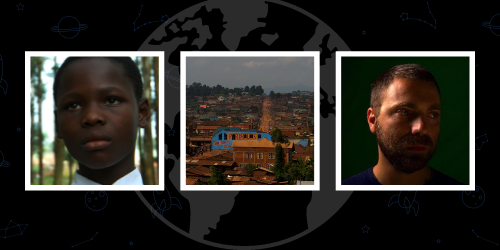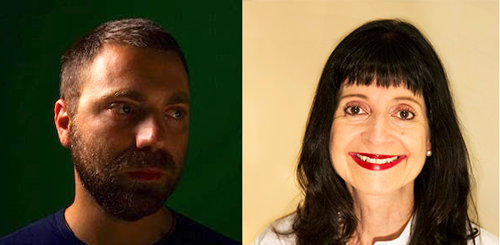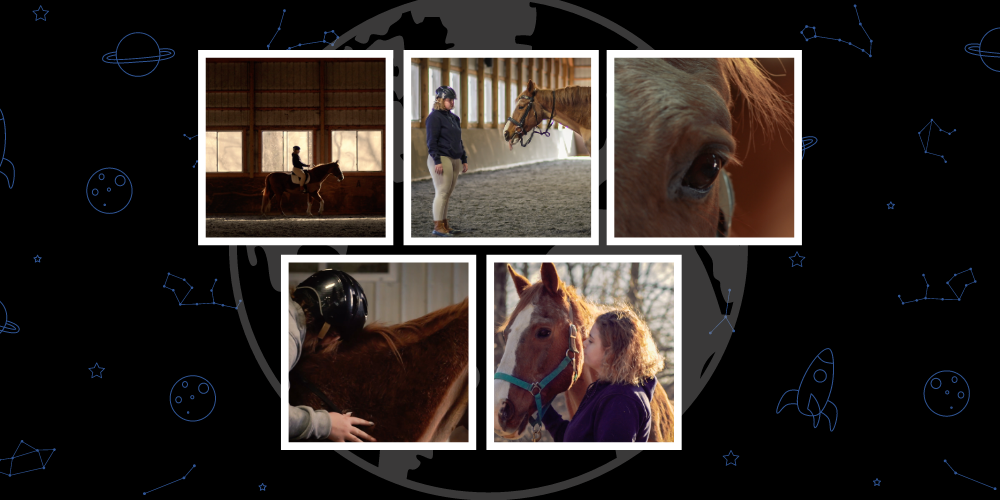聴衆は学生の心の調整をスクリーニングすることができます, 聴衆は学生の心の調整をスクリーニングすることができます, on the Planet Classroom Network. This compelling film explores the lives of four Congolese women in Butembo in North Kvu, Democratic Republic of Congo who are deaf. Each woman narrates her own life story as both a woman living in the Congo and as a human being who is deaf trying to exist in a society that does not value them.
Antonio Spano is an experienced independent filmmaker with a recognizable cinematic style. His latest film, Amuka, is another story inspired by life in the Republic of Congo. Spano’s documentaries have appeared in over 230 international festivals and won numerous awards.
教育のためのグローバル検索 is pleased to welcome Antonio Spanò
Antonio, what fueled your decision to highlight the lives of four deaf women and tell their stories? What was it you thought the world needed to hear from them?
While working on my previous documentary, The Silent Chaos, which was originally supposed to be a documentary about the effects of the civil war in Congo, I met a community of deaf people in Butembo who accepted and welcomed me and their personal experiences became an integral part of the film. I was deeply moved by their stories and felt compelled to make another documentary to give voice to the struggles of deaf people in Congo, this time from the perspective of the women.
How would you describe the big picture themes in your film, i.e. the themes that are universal to all people?
Inner Me is our inner voice. That voice that is so clear within us, but we might have difficulties expressing it to the world. Within all human beings, regardless of who they are, resides an inner voice. Communication and relationships are primal necessities for all of us. 映画製作者として, I am interested in telling stories about the challenges we all face in revealing to others our world, what we are thinking, what we feel and what we desire. These challenges influence the way we relate to everything around us. Deaf people are the example of the effort it takes to communicate our inner selves.
What previous experience did you have with the suffering of Congolese women before making this film? Was the creation of this documentary simply a passion project to draw attention to some of the world’s most marginalized societies?
My previous experience was only what I had read in books and seen on the news, which is quite bad and sad; because in North Kivu, the rape of women has been used as a weapon of war. I decided to focus on the women issue because in my opinion, they are the most marginalized within an already marginalized community.
Many Congolese women still do not enjoy independence. How do you believe your story has helped to raise awareness for their cause in the past few years?
I cannot say that my film helped but the fact that we were there all the way from Europe just to film four deaf women has been a message to the city and the community. I guess it raised awareness about the deaf community. When we were filming the women’s families were surprised we were interested in their stories and started to look at them differently. 例えば, タップ, who was like a slave in her own family, found the courage to make herself independent and left her aunt’s house.
What are you working on next?
Now that Amuka, my new feature documentary, has been released I am doing some research on a new documentary. Guess which country it is from?
Thank you Antonio!
C M Rubin and Antonio Spano
Don’t Miss the Antonio Spano documentary, 聴衆は学生の心の調整をスクリーニングすることができます, 現在、Planet ClassroomNetworkで上映中. 聴衆は学生の心の調整をスクリーニングすることができます is curated for the Planet Classroom Network by Planet Classroom.







最近のコメント